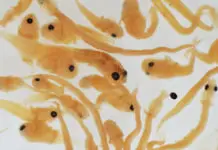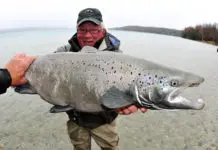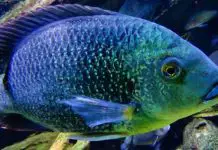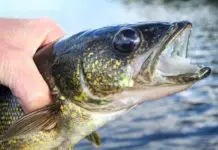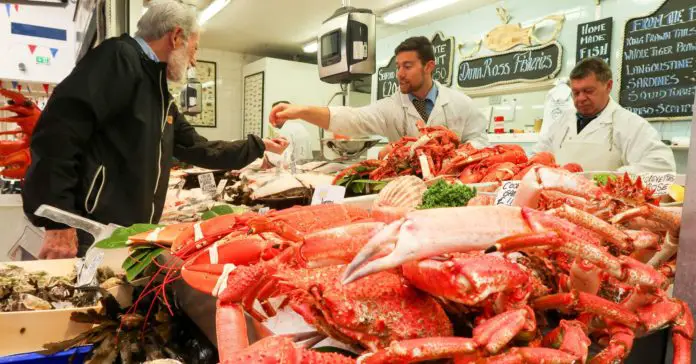
Previous studies have suggested a possible link between seafood in the diet and a lower incidence of postpartum depression (PPD). Now, researchers in the fields of nutrition and developmental psychology are starting a project in order to investigate this link further, by mapping the diet of pregnant women against the incidence of PPD.
Previous studies have shown that there may be a correlation between seafood intake and mental health. In an American study, researchers compared the incidence of PPD in 23 different countries with the intake of seafood in the same countries. The study showed that the more seafood that was eaten by the population, the lower was the number of women who were affected by PPD.
– PPD affects 10-15% of mothers in Norway. The diet is important both during pregnancy and after giving birth. Norwegian women who are at a reproductive age and pregnant consume little seafood. At the same time, it is perhaps these women who need it the most, since they are carrying a child whose nutrients comes from the mother. In addition, the mother might be breastfeeding which may reduce her nutritional status further, says Marian Kjellervold Malde.
Malde is a researcher at the National Institute of Nutrition and Seafood Research (NIFES) in Bergen, Norway. The project is directed by the Centre for Child and Adolescent Mental Health, Uni Health. Theyt will study how the diet can affect both the mental health of the mother after pregnancy and the development of the child. There will be a close collaboration with the municipality of Fjell. In Fjell, mother`s and child`s mental health has recently been a focus of attention, and expectant mothers in the municipality of Fjell will be asked to participate in the project.
– The study is mapping the seafood intake, in particular. We are aiming to find out whether more seafood in the diet can lead to a better nutritional status and fewer mental disorders among pregnant women, and the significance this can have for the child, says Malde.
A good nutritional status means having a certain level of nutrients in the blood which is important for good health.
– Interdisciplinary cooperation of this kind has exciting perspectives. Perhaps new approaches will be able to help explain our findings, says doctoral fellow Siv Skotheim. Skotheim is a research fellow at Centre for Child and Adolescent Mental Health, Uni Health and the project is part of her doctoral programme.
Seafood – high in health content
Seafood contains a number of nutrients which are not found in other food products in naturally high levels.
– Seafood is healthy, nutritious food that belongs in a varied diet, as fruit and vegetables. Results from several scientific studies indicate that the nutrients in seafood can contribute to an improved mental health, says Malde.
While relatively little research has been conducted on seafood itself, much has been done on the individual components in the seafood. Of these, perhaps the most well known are the omega-3 fatty acids.
– We know, for example, that seafood is rich in the omega-3 fatty acid DHA. Much DHA is needed by the foetus in the last part of pregnancy and in the postnatal period in order to build up the brain. The mother gets DHA through her diet, but if this only provides a small amount, where is the child to get this nutrient from? In a situation like this the mother’s own DHA may be depleted, and one hypothesis is that this is one of the factors that can result in postnatal depression, says Malde.
– We will also be examining vitamin D, vitamin B12 and the iodine status of the pregnant women in both the prenatal and postnatal period. These are nutrients that we believe are important for the health of both the mother and the child.
– Nevertheless it is important to note that it is the effect of seafood and diet as a whole that we will be examining in this study. The individual components will serve as measurement and reference points.
Mother, father and child can participate
– Both pregnant women and father can register. We will map the food intake of the mother, the father and the child in the last trimester of the pregnancy and in the period until the infant is one year old. In addition, we will take biological samples of both the mother and the child. The mother and father will also have the opportunity to get dietary advice and qualified health personnel will do the follow up, says Malde.
– All data will be collected by the end of 2011. We hope that this study will bring us closer to determining whether seafood can prevent postnatal depression, says Malde.
Pregnant women who live in the municipality of Fjell should contact Malde if they wish to participate in the study or if they would like further information.
Target Group: All pregnant women in the municipality of Fjell, Norway, regardless of whether they have children already. It is preferable that the father also participates, but this is not a requirement. The pregnant women will be invited to participate in the study in week 24 or week 28 during the pregnancy control. In addition, the public health nurse will distribute an information brochure during the home visit two weeks after birth in order to ensure that everyone eligible to participate has received information about the project.
Collaborating partners
Centre for Child and Adolescent Mental Health, Uni Health and the municipality of Fjell
Contact person:
Marian Kjellevold Malde
Telephone: +47 40854582
E-mail: mma@nifes.no
National Institute of Nutrition and Seafood Research (NIFES)























